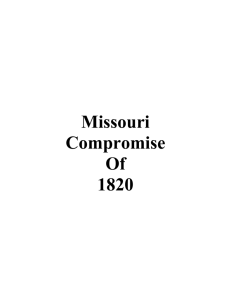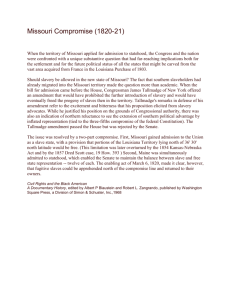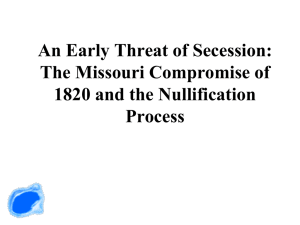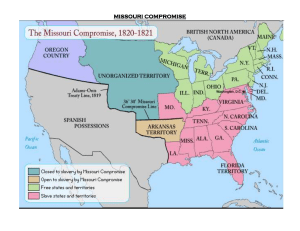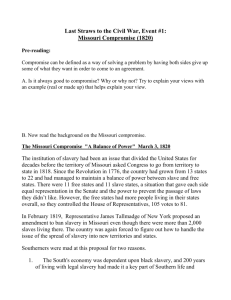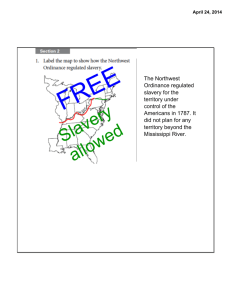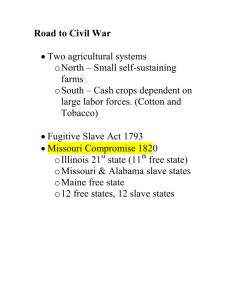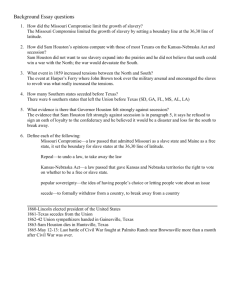Section 3 reading
advertisement
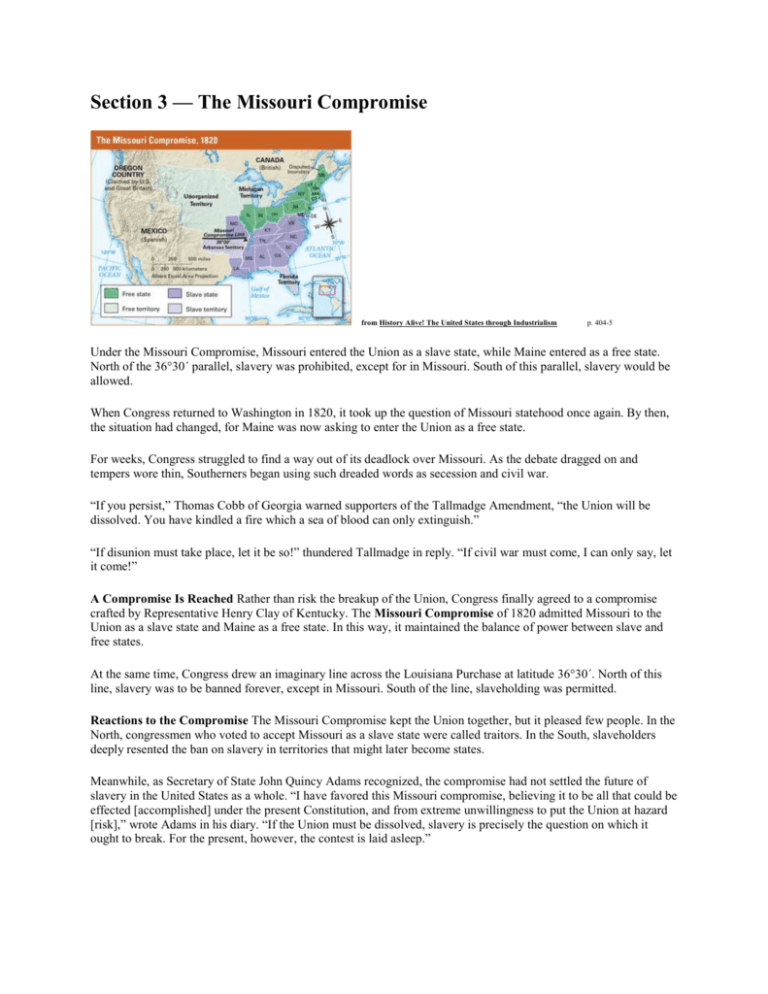
Section 3 — The Missouri Compromise from History Alive! The United States through Industrialism p. 404-5 Under the Missouri Compromise, Missouri entered the Union as a slave state, while Maine entered as a free state. North of the 36°30ʹ parallel, slavery was prohibited, except for in Missouri. South of this parallel, slavery would be allowed. When Congress returned to Washington in 1820, it took up the question of Missouri statehood once again. By then, the situation had changed, for Maine was now asking to enter the Union as a free state. For weeks, Congress struggled to find a way out of its deadlock over Missouri. As the debate dragged on and tempers wore thin, Southerners began using such dreaded words as secession and civil war. “If you persist,” Thomas Cobb of Georgia warned supporters of the Tallmadge Amendment, “the Union will be dissolved. You have kindled a fire which a sea of blood can only extinguish.” “If disunion must take place, let it be so!” thundered Tallmadge in reply. “If civil war must come, I can only say, let it come!” A Compromise Is Reached Rather than risk the breakup of the Union, Congress finally agreed to a compromise crafted by Representative Henry Clay of Kentucky. The Missouri Compromise of 1820 admitted Missouri to the Union as a slave state and Maine as a free state. In this way, it maintained the balance of power between slave and free states. At the same time, Congress drew an imaginary line across the Louisiana Purchase at latitude 36°30ʹ. North of this line, slavery was to be banned forever, except in Missouri. South of the line, slaveholding was permitted. Reactions to the Compromise The Missouri Compromise kept the Union together, but it pleased few people. In the North, congressmen who voted to accept Missouri as a slave state were called traitors. In the South, slaveholders deeply resented the ban on slavery in territories that might later become states. Meanwhile, as Secretary of State John Quincy Adams recognized, the compromise had not settled the future of slavery in the United States as a whole. “I have favored this Missouri compromise, believing it to be all that could be effected [accomplished] under the present Constitution, and from extreme unwillingness to put the Union at hazard [risk],” wrote Adams in his diary. “If the Union must be dissolved, slavery is precisely the question on which it ought to break. For the present, however, the contest is laid asleep.”

